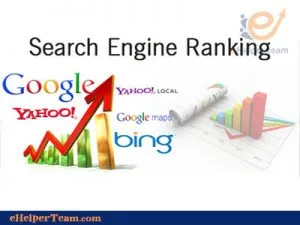Attention SEO Tips | Optimizing the website of the Google search engine without the others is wrong
Yes, dear reader, do not be surprised. Google search engine is the most powerful and most used search engine in the world. This is a fact, this superiority and superiority over the rest of the search engines makes webmasters and SEO professionals optimize their websites for the search engine Google. By following up the latest developments, updates and improvements made by Google on its algorithm. But what about other search engines? Is neglecting it true? Are there any reasons why we should be interested in search engines other than Google? Is there a way I can configure my site for Google and at the same time for other search engines?
Google Search Engine Alternatives

Have you heard of Chinese search engine Baidu? Have you heard of Russian search engine Yandix? You may tell me what I have to do with a Chinese and another Russian search engine. Well before you rush, what if you think in the future and after the success of your site to be used for commission marketing. Or I like to promote a program you have developed or a specific product with its results. And you want to target China, Russia and the countries of Eastern Europe. Your gateway to these two countries is the search engines mentioned above.
However, during the process of developing your site you did not take the two previous search engines into account. And your interest was focused on Google. The disaster is not, in today’s article we will learn some of the ways we can use to create a site for Google on the one hand and for the rest of the search engines in the hand. The way of thinking I will share with you in an article today is the most appropriate way to configure the site for search engines. I’ll tell you some examples that can help you learn to think correctly to apply SEO techniques. In a way that matches as many search engines as possible.
JavaScript and AJAX
Google recently announced that its crawler is able to read and archive links and content contained in JavaScript and AJAX codes. Of course, news like this is excellent news for developers and webmasters. They can now use JavaScript and AJAX tags without worrying about how their site will rank in Google. But to work properly we have to take a little time and think about the rest of the search engines. For example, the search engine crawler Baidu is not skilled in browsing and archiving JavaScript. After a site using JavaScript, the number of pages indexed in Baidu decreased from 86,300 pages to 174 pages only. For Yandex, it was announced in November last year that it had started archiving content and links using JavaScript.
SEO Tips: I advise you not to use JavaScript with content if it can be removed. At least temporarily until we see better support and greater ability for crawlers to handle JavaScript. To ensure that your site is archived in as many search engines as possible.
Meta tag & Meta title
Here I mean the key words and the importance they take when they are listed in the Meta tag or title tag. Search engines differ in how they handle the topic. I will not expand on the way each search engine behaves on its own. But I will give you butter, key words and if they appear in the meta tag or title tag. They are useful in search engines and are not useful in others but they also do not hurt. So as long as there is no harm (compared to the previous JavaScript case), I advise you to use it (naturally and not artificially) you will not lose anything.
Subdomain and subfolder
Let’s say you want to create a sub-section of your site for China, how would you choose its title? Would you choose a subdomain: cn. mydomain .com Or would you choose a subfolder: mydomain .com/cn? Which is better for local search results? By going back to Google you will find that Google advises you to use any method that both works well for them. But remember that you are targeting China and too many Chinese are using Baidu. Returning to the Baidu search engine you will find it preferable to use the recommended subdomain method and not the subdomain method. I think the answer is now clear.
Place the content on the page
The way search engine crawlers have evolved significantly in recent years has become able to index content no matter where it is located on a web page. But some engines still adopt a different approach to crawling. Take the baidu search engine, which crawls the entire page for the first time. But when he crawls a page he has previously indexed. It will only read the first 1000 bytes of the page. If no changes are made, he stops crawling on the page and moves to the next page.
To avoid such situations, always try to mention the content and keywords at the beginning of the webpage if you update the content of a page. At the bottom of the page, try an update at the top of the page or add the page link to Webmaster Tools for your search engine to ensure that the new content is indexed after being modified.
There are other differences between Google, Yandex and Baidu, but my goal in this article is not to highlight differences. But to give you the right way of thinking with examples so you can later circulate them to the search engine you wish to use to serve you. The search engines are many and varied and your skill in harnessing them for your benefit is offset by an increase in profit and an increase in the number of visitors.




